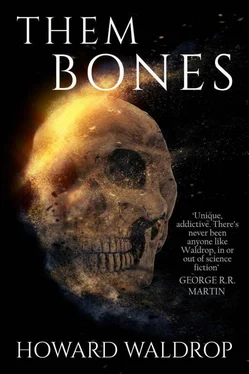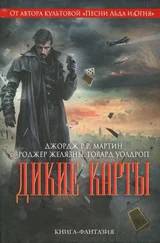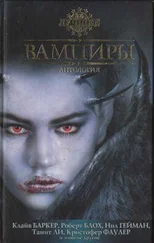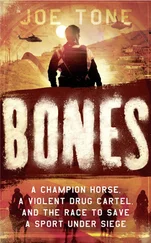‘Plague? There are always plagues of one kind or another,’ said Ali. ‘Little can be done with them. But a great plague, no. Hippocrates says that nations and cities must reach a certain size before the plagues become endemic. We have very few truly large cities.’
‘You kept Greek learning, then? What about all the lost books? What about the library at Alexandria? Weren’t all the books burned?’
‘Burn all those great works! What a horrid idea!’ said Ali. ‘But where is this place Alexandria? The great library is in Cairo, in Egypt.’
‘Alexandria the Great? Philip of Macedon? Darius the Persian?’ I said.
‘These names are unknown to me,’ said Ali. ‘Hamilcar established the great library at Cairo. Through the many contacts of carthage’s trade network, he had books brought there. They were there when the True Believers took the city. There they remain, though they have been endlessly recopied, and, I am afraid, many errors have crept into them.’
‘Then this ship,’ I said, ‘the lights? These are all applications of Greek science?’
‘Well, yes,’ said el Hama. ‘That, and knowledge of our own, through many centuries of experiment and change.’
I drank my coffee.
‘This will take some getting used to. You say it was thirty years ago your ships first came here?’
‘Oh, they’d been coming, one or two at a time, for centuries, by mistake or accident or foolhardy venturing. Sail was fine for the Indian Sea, or what you call the Mediterranean, or northern coastal trade, and West Africa. But for this western trade, you need something you can depend on. Steam. So it was only after we had dependable steam that the Consulate of Merchants sent trading expeditions here.’
‘And Took-His-Time was captured twenty years ago by one of them? Which is why he speaks Greek?’
‘What can I say?’ El Hama spread his arms. ‘As with all frontier operations there were unscrupulous things done in the name of commerce. Many of the unregulated traders carried out similar actions to gain advantage. Take young people, hold them in virtual slavery, use them as interpreters and so on.’
‘What is this place like, the whole continent, now?’
‘I’m sure Took has told you as much as we know. In the northeast, small hunting, fishing, farming groups. In the south – your east – are the mound-builders, like Took and his people. They go from the southeastern peninsula to just west of the Big River we are on. To the northwest, people poorer than the poorest nomads of the deserts of Egypt, a few of whom were brought back to our lands as curiosities by the unprincipled.
‘To your west, and southwest for a long way, is the country of the Huastecas. They are the meanest people we have met in this world, though they have a culture nearer to ours. We have a few trade stations to the south, but we really don’t like to deal with them much. Neither do your people. But they make such fine jewelry.’
‘And you trade up and down the River each spring?’
‘That is my mission now, though there will soon be others. The trade is so profitable, on both sides, that there is plenty for all, and the trade is so novel to each side that it will remain so. Other markets change, prices come and go. I’m told that right now you can burn cotton in Africa before you can give it away. But bring knives to the New Lands, or take furs back to Egypt, and your market finds itself.’
‘Yet you restrict your trade in certain ways.’
‘You speak of firearms, explosives, certain animals?’
‘Yes.’
‘Not through lack of profit, I assure you. But the Consulate of Merchants learned a great lesson in western Africa. Within twenty years of unlimited trade there, we were fighting ten wars, caring for thousands of refugees, and looking at denuded lands unfit for anything. The place had become desert, which year by year creeps farther into the jungle. That was six centuries ago, and we now know better than to do it again.’
‘That is why we were so surprised to see your horse,’ said Ali. ‘It is, as far as we know, the only one on the continent. If it is the only one, there will never be more.’
This was the first time they had come around to a question for me. I prefaced my story by saying I didn’t understand all that had happened, and certainly didn’t expect them to.
I told them what had happened in the world I came from as best as I could remember my history. I told them of Alexander, of Rome, of the rise of Islam (with the father of their Prophet as its leader), of Christianity, and of a Europe at first united then split by religion, of plague, wars, of science, everything I could think of.
The more I told, the more it began to sound to me like a story of greed, folly and misfortune, like a tale told by a crazed and vindictive storyteller with a grudge against humanity.
I told them of that last, terrible war, of the death and dying, and of that last valiant attempt, of which I had been part, to change all the terrible things that led to the war.
When I finished, I thought they were going to applaud. Their faces were a little sad, but awed, as if I were an entertainer with a trick that had outdone all others they had ever seen.
‘Allah works with each of us in his own way,’ said Ali the physician.
‘Come back with us!’ said el Hama, suddenly. ‘There is a man they tell of in Baghdad who appeared one day years ago with a tale such as yours. He is dead now, but some of the learned who talked with him are still alive. Come back with us to the lands of learning, and speak with them.’
‘I doubt I could do anything but confuse them,’ I said. ‘Your invitation is tempting. Ask me again when you come back downriver. I’ll think about it till then.’
I wondered if others in the Project had been tossed into this world. Or were there others from somewhere else, some other time than mine, or from the future or past of this world, or yet another?’
I was tired. My mind could hold only so many things in it. I had reached my limit on novelty and culture shock.
False dawn tinged the sky over the River.
‘You have been very helpful,’ I said. ‘I don’t know how to thank you enough.’
‘If you wish to go with us when we return, you are welcome,’ said el Hama. He shook both my hands with his. ‘We will return halfway through the next moon awash to the line with goods. And perhaps we can ride your horse again? One gets so tired of the ship.’
‘At any time,’ I said. ‘Thank you. And thank you, Ali.’
‘Take this when you go,’ said el Hama. One of the Northerners handed me a three-kilo bag of ground coffee.
I felt like crying as I left – for myself, for losing my way, for ending up in this other, crazy world, for mankind. For the coffee. It was all too much.
As they let the ramp down for me to get ashore, I heard one of the Northerners sneeze.
WAR DEPARTMENT
21 July 1929
RE: Serial Nos Possible US
Army Personnel, yours 18
July 1929
Kincaid
Salvage Survey
c/o Dixie Hotel
Suckatoncha Louisiana
via Baton Rouge
Dr. Kincaid:
US DOInterior Veteran’s Bureau lists three names: one Mexican War died active duty Nevada Territory 1852, two GAR veterans one died April 1872 Abrams Massachusetts, one Old Soldier’s Home, Seip Va. DOBs do not match in any case. List w/particulars sent via US Mail.
Daughters Confederacy, SA War Veterans, Navy-Marine Corps DOTreasury searches not yet completed.
ETA Cpt Thompson, this command, NLT 2200 this date Hotel Dixie.
Jillian,
Читать дальше









